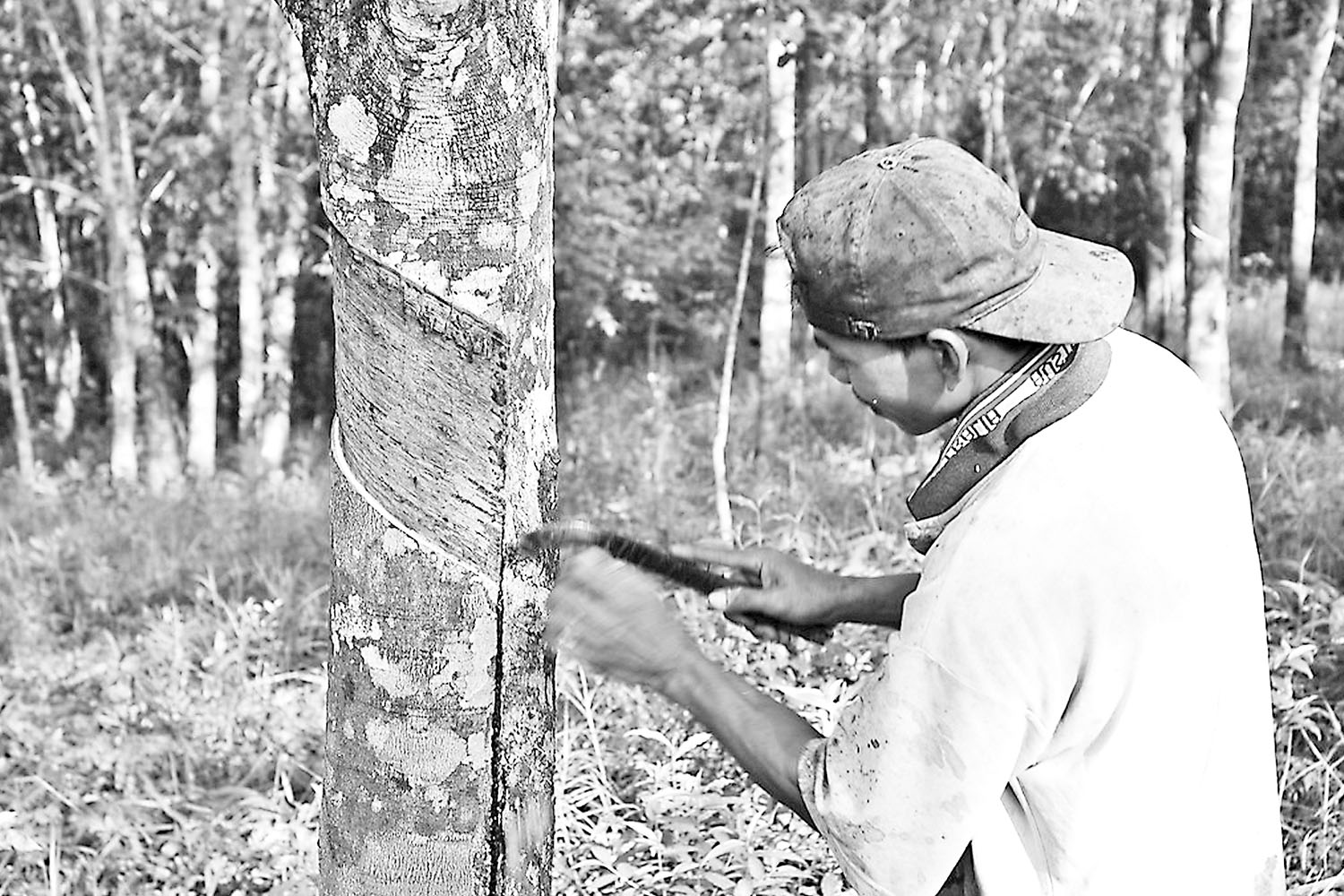Rubber planters face difficulties including labour shortage
Rubber planters across Myanmar are currently facing some difficulties for quality enhancement of rubber products, including shortage of skilled workers, according to U Khaing Myint, general secre-tary of Myanmar Rubber Planters and Producers Association (MRPPA).
He continued: “Rubber farms are facing a shortage of rubber plantation workers, especially the skilled workers. Now, the rubber planters are solving the labour shortage by providing employment opportunities to young people who are keen to work but have no job. Some skilled laborers from the large-scale farms have moved to the small-scale farms. The MRPPA and the Department of Industrial Crop also conducts necessary work training for new workers.”
The small-scale rubber operator means a rubber planter who owns a rubber farm under 50 acres and the large-scale operator means a rubber planter who owns a rubber farm above 50 acres. There are only 8 percent of large-scale rubber planters and 92 percent of the country’s total rubber plantations are operated by smallscale rubber planters.
In Myanmar, there are 1.6 million acres of rubber plantations. Of them, more than 800,000 acres produce almost 300,000 tons of rubber per year. The do-mestic consumption of rubber is only 8 percent and the remaining 92 percent of rubber pro-duction goes to foreign countr-ies including China, Malaysia, Indonesia, South Korea, Vietnam and Singapore. Myanmar sells 70 percent of the total rub-ber production to neighbouring China.
Arrangements are being made to improve the quality of rubber products with the assistance of experts from Thailand and China.
SK
